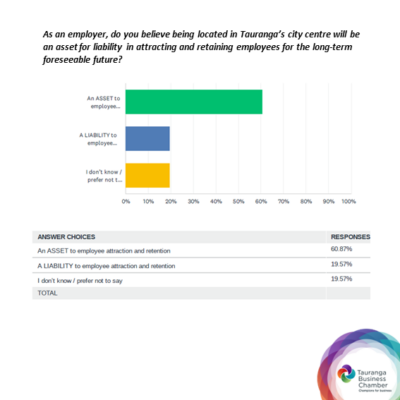For many businesses, COVID-19 was a shock to the system – their digital system, that is.
Traditional ways of working no longer suited and the need to store and share data, connect and collaborate, and even pivot their marketing approach via digital platforms was critical.
Now we’re back to our ‘new normal’, how can we take the learnings of lockdown and continue to evolve our digital thinking, to become more effective and innovative businesses?
As part of the Groundswell Festival of Innovation / TechWeek, we hosted a Thought Leadership session with Dan Waugh (General Manager ICT at Comvita), Georgia Meek ( Founder and Director at Babysitters Club) & David Bell (Director Business Growth at Xero) to discuss digital innovation and transformation, their own experiences and the lay of the land more generally.
You can watch the full 45-minute webinar in this article.
We also caught up with David Bell for some follow-up questions about digital transformation.
With regards to productivity, do you believe New Zealand businesses have a problem in this area and why? Do you think COVID-19 exposed some of the productivity ‘holes’ or inefficiencies, and how?
Because of Kiwi ingenuity and our ‘number 8 wire’ mentality, you may not think that New Zealand has a productivity problem. New Zealand has a sub-optimal performance when it comes to GDP per capita, performing about 30% below the average of the top half of the OECD. With small businesses accounting for more than a quarter of NZ’s GDP, we’ve got a chance to boost productivity by getting technology into the hands of small business.
COVID-19 revealed something we’ve always known, but haven’t had the urgency to act on. And that is, technology is an enabler for growth. Technology is designed to make our lives easier. What we saw during COVID-19, was the businesses that were digitally enabled before the lockdown, were the ones who were able to make quick decisions based on data, and adjust their business to what was happening in their market.
Those businesses that didn’t have the courage, knowledge or support required to embrace technology pre-COVID, realised that they need to move to the cloud to survive. For small businesses, cloud technology has gone from a want to a need.
When we talk about the ‘new normal’, what does this mean for a lot of businesses? What are you seeing as their new normal?
The biggest change for all of us is going to be adjusting to a more flexible way of working. We’ve proven to ourselves that we can maintain productivity while working remotely, by using cloud technology. So we will see many more businesses embrace flexible working. For employers, there are challenges to retaining culture through a more distributed team. It’s going to be important to stay connected and communicate as much as possible in the ‘new normal’.
Another change we’ve seen is the rapid move to online – mostly evidently in retail and restaurant businesses. For instance, Elspeth Bakery in Tauranga was a purely on-premise, physical store that embraced e-commerce straight away to survive. They set up a website in the first weekend of the lockdown, starting out with just four products, but ended up outperforming previous sales. We saw this across multiple food and retail businesses, but going forward, this needs to happen across all industries.
For those who are unfamiliar, what do you define as Cloud technology and what can this be applied to?
When we talk about ‘cloud’, we mean securely accessing and sharing information, and gaining real-time insights through the internet, rather than via a desktop or hard drive. Some everyday examples are internet banking and online accounting. In the last decade we’ve seen an influx of cloud tools designed specifically for small businesses, across virtually all industries.
The beauty of cloud-based tools is that they can be accessed anywhere, anytime. This instant access to data allows you to collaborate and make good business decisions quickly. With everyone looking at the same information, no matter where they are, problems can be solved faster, and work can be done more efficiently. Cloud technology is also much more affordable than data stored on big servers we used to all have under our desks.
What are the three key ways that businesses can improve their efficiencies through digital enablement?
Cash flow: The number-one thing for businesses is managing cash flow. Businesses should be using digital tools to help them get paid on time. Using online payment services gives your customers the option of a simple, secure payment that takes seconds to complete. On the accounting side, if you regularly reconcile your bank data into your online accounting system, invoice online with a 10 day payment term, and manage your paywalls in an efficient way, you’re highly likely to have an uplift in your cash flow performance.
Customer: Now, more than ever it’s so important to know your customer, where they are and what they want. Through a decent CRM you will be able to store and surface this data and in turn, start to be able to recognise loyalty. Businesses that are across their customer data generally win the ‘fight’ for customers.
Communication : Using social media is critical to reach customers and build relationships with them. Social media can be a particularly effective communication tool, but you have to use it in a smart way. There is lots of support out there to help you reach the right people, at the right time, on the right channel.
The best way to improve your business once you’ve started collecting your data in the cloud, is to get curious about the numbers. Know the right questions to ask. Why did sales of one product go up in that month? Why did my expenses sky-rocket that week? This will help you have meaningful conversations with your accountant or bookkeeper on where your business is at and what you need to do to improve your numbers and achieve your goals.
What are some barriers that might stop small businesses from bettering their digital processes? How can they overcome these barriers?
Small business survey research conducted by Xero reveals time, money and a lack of information are the main barriers faced by small business in adopting cloud technology. Despite this, since the Level 4 lockdown, nearly half wished their business had better processes in place before the lockdown.
We all know change is scary, especially when it comes to technology. It’s okay to be afraid of moving to the cloud. There’s so much support available whether it’s online help articles or using a cloud integrator to help you get set up. Get someone to help you over the starting line.
Once you get going in the cloud, it becomes very logical to run your business through these tools. You aren’t locked into lengthy contracts, and most of these solutions work on a pretty affordable monthly subscription. Cloud technology is designed to be secure, simple and scalable. So it’s relatively easy to plug and unplug tools where they aren’t driving efficiencies, or where you need added capacity.
Looking at your Small Business Insights, what are some industries that have flourished and some that need a hand over the next six months?
The latest data shows a cautious sign of recovery. It’s quite amazing to see after a steep decline in small business revenue between March and April during the lockdown, this is now back to 2019 levels for June. While this is a positive sign for our economy, the data is an average across all small businesses – so while some businesses are doing extremely well post-lockdown, which is helping drive revenue back to 2019 levels, others are still hurting and need as much support as possible.
For those that can, shopping locally and paying invoices on time will be vital to small business recovery. Of course, we know tourism businesses in many regions are still struggling, so it will be crucial to continue supporting local travel in the next six months and beyond. It will be interesting to see from the next round of Xero Small Business Insights data for the month of July, if there has been an impact from the school holidays on small business revenue.
















































